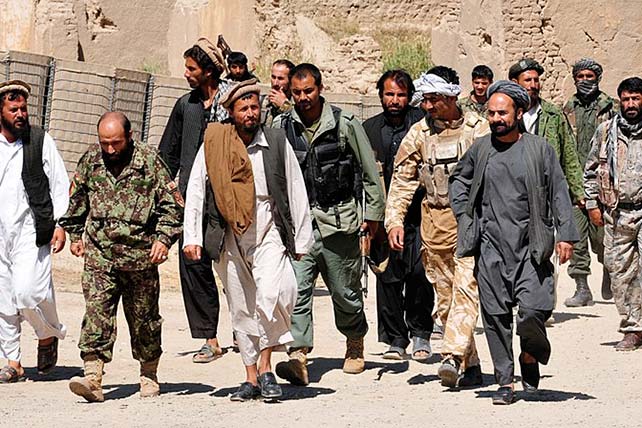Afghanistan (International Christian Concern) – Since the U.S. withdrawal from Afghanistan in 2021, religious and civil liberties have rapidly deteriorated under Taliban rule. Under the current regime, former government officials and civil servants, and religious minorities like Christians endure intense governmental and societal pressure and scrutiny. They face regular raids on their homes by the Taliban, frequently receive threats against their jobs and families, and lack access to educational opportunities.
The Taliban are attempting to cut contact between Afghani citizens and any Western groups and have practically eradicated on-the-ground relief efforts by NGOs. Any group looking to provide long-term relief efforts, such as livelihood relief, must be wary of Taliban spies among their workers.
RELATED: Afghanistan Christians in Hiding, Denied Aid Year After U.S. Withdrawal
The state of religious freedom and Christian tolerance in Afghanistan has not improved since ICC reported Afghanistan as one of the worst places in the world to be a Christian in the 2022 Persecutor of the Year report. The Taliban are working to completely erase Christianity or any religious minority from the country, even stating that there are no Christians in Afghanistan, an obviously false claim. Many Christians have gone underground to avoid being kidnapped by the Taliban “courts.”
Poverty, Betrayal, and Torture
The rising starvation rates and increasing poverty in Afghanistan create an even higher security threat to these believers since now the Taliban are offering financial compensation to anyone who reports on Christians. In an interview with Mission News Network, Lana Silk, CEO of USA at Transform Iran, said, “The Taliban are offering money for Afghans to turn in any Christians they know. And Afghans are desperate, further heightening the security risk [to] Christians.”
Unless ransomed by their families, Christians captured by the “courts” face brutal torture and even death. If redeemed, the survivors and their families, often bankrupt from the exorbitant ransom demands, must flee their homes to avoid repeated kidnappings from the various Taliban gangs.
Pakistan’s Refugee Crisis
Because of the persecution, many Christians escape to Pakistan and risk capture and death by the Taliban. Even if they make it to Pakistan, they must conceal their faith for fear of receiving worse treatment in already poor conditions. Some Christian refugees decide to return to Afghanistan, deciding they have a better chance of survival under the Taliban than in Pakistan.
The Pakistani government, unprepared for the influx of refugees, has begun to crack down on immigration. Many immigrants cannot find work to provide food or rent for themselves and their families.
Many hoped that Pakistan would simply be a holdover point so they could get to countries like Taiwan, Brazil, or Canada. But even with appropriate travel visas, they lack the necessary financial resources to leave the country.
Taliban Politics and the West’s Response
The West’s response to the regime has been ambivalent at best. The international community continues to employ heavy economic sanctions against Afghanistan, devastating its economy. While no government has officially recognized the Taliban, 30 countries have engaged with them in diplomatic talks. Some countries have expressed support for the new regime, including Turkey, Pakistan, China, and Russia.
RELATED: USCIRF Report: Religious Liberty Falters in Afghanistan
While the Taliban are striving to be recognized as a legitimate governmental entity by the West, the regime is dealing with its own political turmoil. Though its leader Haibatullah Akhundzada maintains an appearance of strict totalitarian control, a recent report by the UN Security Council notes divisions between his highly conservative followers in Kandahar and the more internationally minded faction in Kabul. The conflicts mainly revolve around certain policy decisions, such as the suppression of women’s education and efforts to increase personal control and resources within the government. These power struggles raise concerns because of their implications for Afghanistan’s persecuted minorities.
The Light Shines In the Darkness
Despite the Taliban’s best efforts, the gospel still finds an audience in Afghanistan.
In the country’s rural mountainous regions, people are hungry for the gospel, leading some Afghani believers to make regular trips on foot to these remote villages to preach and mentor new converts. Increasing poverty rates, Taliban brutality, and repression of civil liberties have left many Afghani Muslims dissatisfied with their religion, leaving their hearts and minds open to Christianity, and despite the dangers, Christians are reaching out to them.
In her interview, Silk noted, “There are secret prayer meetings and teaching sessions; people are giving each other encouragement and hope. They are reaching out and evangelizing the lost around them, which is incredibly courageous, considering the implications.”
If you’d like to sign up to receive the 2023 Persecutor of the Year report when it comes up, sign up here.
This article originally appeared here.

